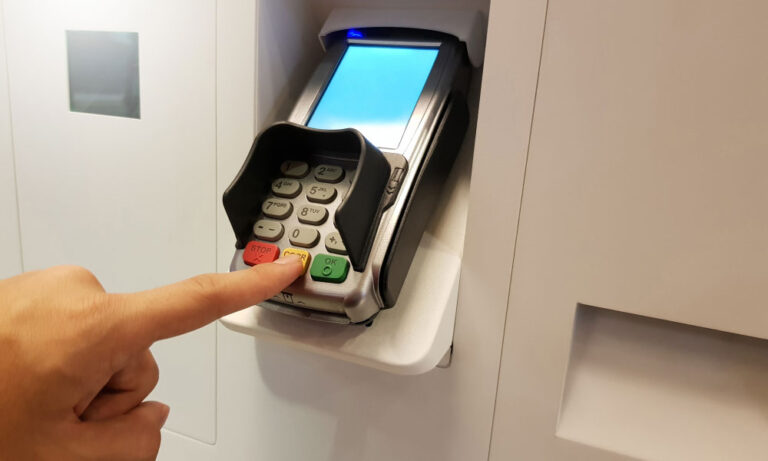Cryptocurrency Eliminates Fraud and Chargebacks, But…

Cryptocurrency: everyone’s favorite topic that they don’t quite understand. But ask yourself this: do people entirely understand conventional money? Maybe not, but they can still appreciate its usefulness. The same applies to cryptocurrencies. Also known as “coins”, “tokens” or simply “crypto”, this technology can be extremely useful to merchants in combating fraud and chargebacks.
In part one, for the uninitiated, we explain what cryptocurrency is and how it works. All you hodlers that already understand crypto can skip to part two, where we consider the pros and cons of accepting crypto in your transactions. Nothing herein should be taken as financial advice — we’re merely presenting some ideas to think about when considering crypto payments in your transactions.
PART ONE: HOW CRYPTO WORKS
Calling them “coins” is perhaps a bit distracting, especially when you see coin imagery everywhere crypto is talked about. Cryptocurrencies are not actual coins; they’re actually sprawling transaction ledgers called blockchains. Blockchain ledgers contain every transaction ever made for their coins, with each transaction secured by encryption keys held by the buyer, seller and network.
The Blockchain Explained
The authenticity of each coin is validated when the ledger of a coin being bought/sold matches with those of all the other coins in the network. When you buy a coin, your purchase is logged in the ledger with every other transaction that has ever taken place on that coin. Combined with the encryption keys of all stakeholders, the blockchain is so elaborate that the coin is impossible to counterfeit or hack. When you hear of crypto like Bitcoin consuming more energy than small nations, they’re talking about the energy required to process the authentications, and to generate ledgers for new coins.
Where Crypto Gets Its Value
The value of a coin fluctuates just like shares in a company from the trading between buyers and sellers (the bulls vs. the bears, respectively). Like stocks, each coin has a market cap (supply x coin price), which is arguably the most important metric of a coin’s valuation, far more important than the individual price of a coin.
Whatever the value of a cryptocurrency, its blockchain is widely considered to be its most valuable asset. Blockchain technology has a vast application beyond just the speculation of buying and selling coins. Blockchains can be applied to contracts, deeds, assets, voting, and just about anything else that requires objective authenticity.
PART TWO: SHOULD YOUR BUSINESS ACCEPT CRYPTO?
Transactional security, objective authentication… crypto ticks all the boxes to provide merchants with highly-secure transactions. The coins can not be faked, and all transactions are final, which means no fraud, no chargebacks. But before you start accepting crypto, there’s a few things to consider.
Volatility
Crypto is famous for its security, but it is infamous for its volatility. What a coin is worth today can plummet (or rise) tomorrow. You probably don’t want to make a sale at $100 and have it worth $70 when you clear the revenue. With precious few exceptions, all coins can fluctuate wildly like this.
One potential solution to this volatility is to immediately convert the crypto you receive into fiat currency, or into “stablecoins” like Tether or USD Coin. Stablecoins are the exception to cyclical nature of crypto. The value of these coins are tethered to some form of fiat currency or commodity. USD Coin, for example, is tied to the US Dollar so one dollar US in USD Coin will remain worth one US dollar. If your crypto transaction volume doesn’t significantly affect your cash flow, you could also “HODL” your coins to liquidate if/when the value goes up.
Fungibility
Another drawback of accepting crypto is that you’ll be among the few businesses that do. This means there’s limited places to spend the crypto you earn. Crypto traders insist we’re early in the game, but widespread adoption and scalability of many coins is still a gamble, and far from guaranteed.
Fees
Be aware of the fees associated with any coins you accept and the exchanges you use. Many crypto currencies boast little or no transaction fees, like #1 Bitcoin. But there are “gas” fees for coins that validate on Ethereum blockchains. Ethereum is the #2 coin, and holds this distinction because its blockchain powers most decentralized “DeFi” tokens; it’s also second fiddle to Bitcoin because of its fees.
Most DeFi tokens require gas fees to move from one wallet to another, and those fees cost far more than a typical transaction fee on the credit card networks. Crypto exchanges can also charge fees when converting to fiat; and they’re currently not well-regulated on what they can charge. If you’re not careful, you can get ambushed by these costs when you redeem or exchange the coins you earn.
CONCLUSION
Cryptocurrencies have brought some exciting innovations to the financial space, and its technology has proven credibility in an increasingly digital world. Merchants who process crypto can rely on its unrivaled authentication and security in transactions. However, they must also mitigate the drawbacks of volatility, fungibility, and fees. While crypto transactions are invulnerable to fraud for merchants, don’t expect them to eliminate fraud altogether, as they have a long way to go to replace credit cards in the ecommerce space.








